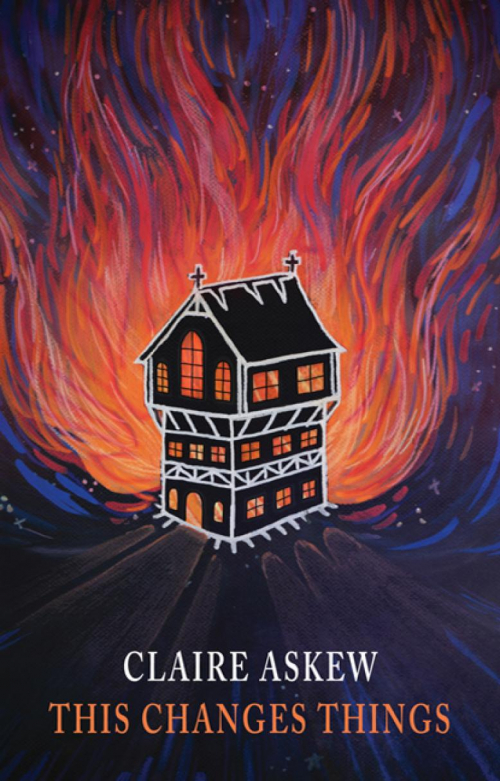Synopsis
This changes things is Claire Askew’s first full collection, coming after years of work in Scotland’s flourishing poetry and spoken word scene.
Her poems focus on the lives and experiences of women – particularly the socially or economically marginalised – at pains both to empathise and to recognise the limits of this empathy. They embody a need to acknowledge and challenge the poet’s privileged position as documenter and outsider, a responsibility to the poem’s political message and to that message’s human subject.
This changes things draws much of its strength from this exploration of inbetweenness. Claire Askew’s purposeful deployment of objects, lighting effects and liminal spaces implicates her reader in the poem’s argument, holds up a mirror and asks us to pay attention. The book’s romantic relationships, depictions of frustrated travel or social mobility, are bound up in its awareness of the systems of power that permit no true state of innocence. Even the final poem, ‘Hydra’ – with its celebration of the body and its senses – cannot ultimately allow us off the hook.
This changes things unsettles the homely and recognisable. In its compromised, imperfect characters and narratives, it proposes a radical way of translating neoliberal Britain.
Her poems focus on the lives and experiences of women – particularly the socially or economically marginalised – at pains both to empathise and to recognise the limits of this empathy. They embody a need to acknowledge and challenge the poet’s privileged position as documenter and outsider, a responsibility to the poem’s political message and to that message’s human subject.
This changes things draws much of its strength from this exploration of inbetweenness. Claire Askew’s purposeful deployment of objects, lighting effects and liminal spaces implicates her reader in the poem’s argument, holds up a mirror and asks us to pay attention. The book’s romantic relationships, depictions of frustrated travel or social mobility, are bound up in its awareness of the systems of power that permit no true state of innocence. Even the final poem, ‘Hydra’ – with its celebration of the body and its senses – cannot ultimately allow us off the hook.
This changes things unsettles the homely and recognisable. In its compromised, imperfect characters and narratives, it proposes a radical way of translating neoliberal Britain.
Moyenne
15.0
1 vote
BON
1 édition pour ce livre
2016 Editions Bloodaxe Books
72 pages
25 février 2016
ISBN : 9781780372761
Qui a lu ce livre ?
1 membre a lu ce livre
Aucun membre ne lit ce livre
Aucun membre ne veut lire ce livre
1 membre possède ce livre
chronique de blog
Aucune chronique de blog pour le moment.
En vous inscrivant à Livraddict, vous pourrez partager vos chroniques de blog !



Pour poster un message, il faut être inscrit sur Livraddict
Claire Askew se pose « là » en tant que poétesse moderne. Ses textes sont empreints d’une mélancolie contagieuse dont one ressort pas indemne. J’ai aimé la voix qu’elle donne entre autres à une classe sociale plus modeste. La thématique de la maison revient souvent dans ce recueil : Lieu sacralisé, concept ou témoin silencieuse, on observe la vie quotidienne à travers son prisme.